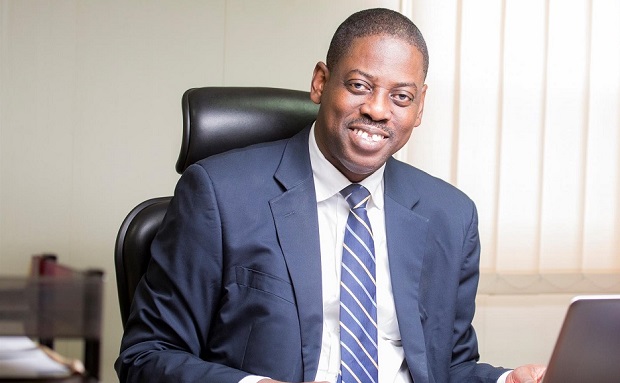The local mining industry can fully harness its potential with long-term capital which can only be realised from the stock market, Director General of the Securities Exchange Commission, Daniel Ogbarmey Tetteh, has said.
He said the business of minerals exploration and exploitation is capital-intensive in nature, and as such requires patient capital – similar to what the Ghana Stock Exchange offers listed firms.
“Gold mining is undoubtedly a capital-intensive industry, and needless to say it is not sustainable to use bank loans to undertake mining. It has taken patient capital throughout the world to undertake exploration and actual mining. All over the world, capital markets have provided capital for a successful mining industry,” he said
Rev. Tetteh said this at the 6th Ghana Mining Industry Awards in Accra, and noted that the history of stock market development in mining countries shows that mining and stock markets go hand-in-hand.
Citing examples, he said the Johannesburg Stock Exchange and Australian Stock Exchange were started by mining firms with the aim of raising long-term capital to undertake mining operations. Today, the Johannesburg Stock Exchange boasts not less than 60 listed mining firms, while the Australian Stock Exchange has over 613 mining and metal companies listed on it.
“This shows how these two countries, endowed with minerals such as gold just as Ghana, have taken advantage of their stock markets to raise capital to enter into large-scale gold mining. It is interesting to note the majority of these companies started small and grew to become multinational in scope and size, generating huge amounts of wealth for their countries’ GDP,” he said
Although Ghana is currently Africa’s leading gold producer, the situation is different here. After 30 years of the local bourse there are only two listed mining firms. This, he said, needs to change quickly because it shows the industry is not making use of the great opportunities which the capital market offers mining companies to scale-up their operations.
“I am challenging our local miners and companies to explore the benefits of listing on the stock exchange to take the commanding height of mining in Ghana. The opportunity to raise capital from the stock exchange in Ghana is not limited to companies directly involved in mining, but also other firms in the ecosystem. For instance, all firms in the supply chain providing ancillary services to the industry can also raise capital from the stock market.”
Value addition
To him, the only way the country can reap full benefits from its mineral resources is to develop an integrated gold economy – with emphasis on processing, refining and transforming the gold into jewellery and fashion accessories. “We need to discipline our minds to develop a fully integrated industry: ranging from mining the raw ore, processing, refining and a comprehensive jewellery and fashion industry,” he advocated.
This, he added, can only happen “when we adopt a comprehensive national strategy toward the development of an integrated gold economy in which Ghanaians shall be at the helm of affairs.”
Apart from the country’s mineral deposits, he said Ghana has all it takes – including skilled and well-trained mining professionals and a fairly vibrant stock market, among others – to use its resources to create exponential wealth for every citizen, just like the Arabs have done with their oil.
Explaining further, he said the principle and concept of generational equity implies that the present generation should have in mind the next generation’s interests with regard to the country’s resources, as this is a cornerstone of every responsible society that depends on natural resources which are bound to get depleted in the course of time.
“As a natural resource it can become exhausted after years of exploitation. Therefore, optimising the mineral reserves that nature has endowed Ghana with for sustainable economic development is non-negotiable,” he noted.










